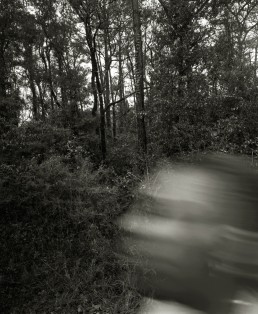S2: Episode 26 - Tanya

Episode Information
[Intro Music]
Narrator: Welcome to Hunger and Resilience, narrative histories about the complexity and experiences of hunger. A traveling exhibition and weekly podcast edited and hosted by Michael Nye, supported by the San Antonio Food Bank, Eric Cooper, executive director. We are grateful for the honesty and eloquence of every voice. Episode 26, Tanya.
Tanya: My husband left me on Mother’s Day. He just packed his things and told me he wasn’t coming back. I asked him why. He said that he just wanted to be a loan. I tried my best to make the payments on the house and the car. I just couldn’t do it by myself. I didn’t feel worthy of anything. I thought about suicide when the man came to my house and he said that I had 10 days to move out. I just couldn’t believe that it had happened that I was homeless. When I moved out we had nowhere to go. I had a car at the time and I had a four year old and a one year old, and the first night that we slept out in the park, there wasn’t too many lights there. You could hear the dogs. They would bark at night, and I didn’t know if someone was walking or coming over to see while we were parked there. Some nights I would just sit up and let my kids sleep. I was very afraid that something would happen to me and my kids.
I would be hungry so bad that I would get sick on my stomach and I would have to vomit, but it was nothing there. It’s just like a dry heave, like air. I could do nothing but just lay or sit wherever I was. It hurts. It’s a terrible feeling not to have anything on your stomach. Nothing. When I would see people walking to the restaurants or grocery shopping, I felt as if they just knew my need, that they would just say, well, come on Tanya, and I’d take you in the store and I’ll buy you a, I’ll take you home with me and you can have a room of mine. And, and I would hate ’em. I would feel hatred toward them for people that had at the time when I didn’t have, and I know that’s such a strong word to say, I was very angry, mainly at myself. It’s like I failed my children.
My oldest son, he would ask me, mama, why? Why? We don’t have anything to eat and I’m hungry, mama. And he would say, over and over, and I would get angry at him because I was trying to figure a way out. What was I gonna do? Where would I go and get the food? How was I gonna get the money? I would ride around and I would look for this certain guy that I had met and ’cause I knew that if I saw him, I would have money. I had to sleep with him in order to get the money. But I would have some money for me and my children to get food, buy gas for the car, maybe even get us a motel room for that night so that we didn’t have to sleep in the car. I hated to sleep with him. I didn’t like him touching me, but I knew if I didn’t do it, my children and I would go another day without food.
Hope means willpower to me. The will to continue to wanna live for my children, to want to get up and feed them and let them play out in the yard and talk to them, read books to them. I know what I went through when I was a little girl. I don’t want my children to go through that. I was truly afraid that, that my children would be taken from me. And I just thought that my world was coming to an end. And so when I called the shelter and the lady talked to me, it wasn’t five minutes, she said, where are you now? Can you get here? And I told her yes. She said, well, I’m waiting on you. It just took my breath away. And I was nervous, but it was different. The women were so patient with us and very kind.
[Outro Music]
Host:Most of the individuals I met that have experienced hunger said they felt invisible like an iceberg. One-tenth is visible above the waterline, and nine-tenths is below the surface hidden. There is so much that the public can’t see or understand. Is there a disconnection between the public’s perception of hunger and the realities of the paralyzing struggles? Welch Diamond, an eccentric photographer, lived in, worked in England, and 1850 he wrote, it’s quite possible to look at someone without seeing them at all. Discovery, or rediscovery usually results from a change in perspective. Tanya loved her children, took care of her children, and faced terrifying choices. Choices that no one should ever consider. Thank you, Tanya, for sharing your voice and your story for your courage and presence. May something in Tanya’s story stay with you. You can go to my website, michaelnye.org/podcast for portraits and transcripts. Thank you so much for listening.
